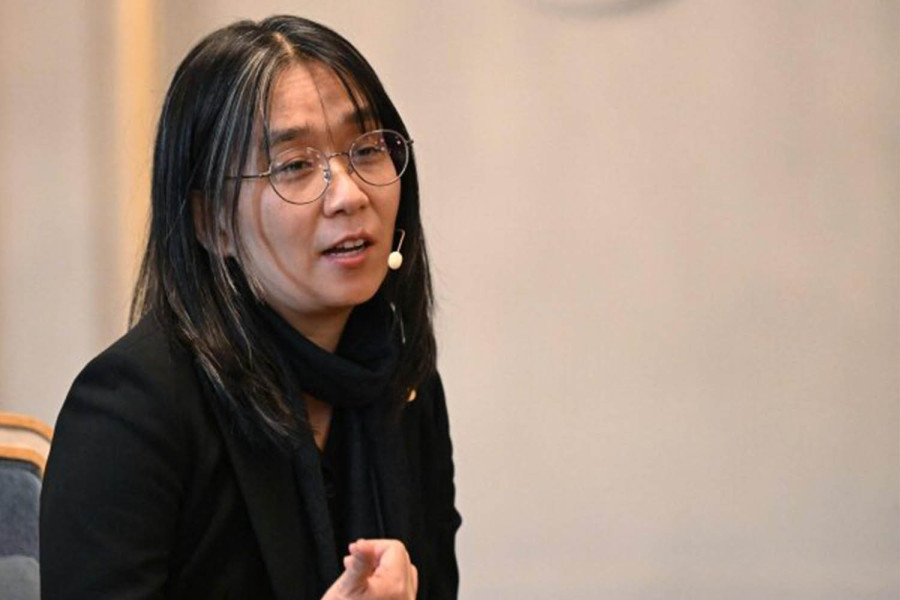World
Han Kang’s ‘Human Acts’ reverberates once again
The current political situation in Korea, sparked by President Yoon Seok Yeol’s proclamation of martial law on Tuesday evening, has drawn comparisons to the historical context depicted in ‘Human Acts.’
The Korea Herald
Just weeks after her groundbreaking Nobel Prize win, Han Kang’s books have sold millions of copies nationwide.
Last week, annual sales reports from major Korean bookstores revealed that half of the year’s top-10 bestsellers were Han's works.
Particularly noteworthy is that among her titles, “Human Acts” holds the No. 1 spot on both Kyobo Book Center, the country’s largest bookstore chain, and Yes24, the leading online retailer. With the global acclaim of “The Vegetarian,” which won the International Booker Prize in 2016, and the recent praise for her latest release, “We Do Not Part,” it is “Human Acts” that has resonated most profoundly with Korean readers.
Coincidentally, the current political situation in Korea, sparked by President Yoon Seok Yeol’s proclamation of martial law on Tuesday evening, has drawn comparisons to the historical context depicted in “Human Acts.”
The novel draws from the May 18 Gwangju Democratic Uprising of 1980, a brutal massacre by the South Korean military that resulted in the deaths of hundreds of students and unarmed civilians.
The country’s previous martial law was declared on October 27, 1979, by then-Interim President Choi Kyu-hah, following the assassination of President Park Chung-hee. The 440 days of martial law saw numerous pro-democracy movements and the December 12, 1979, military coup that brought former President Chun Doo-hwan to power. Chun extended martial law nationwide at midnight, on May 18, and the Gwangju Democratic Uprising erupted as citizens protested Chun’s martial regime.
Readers have filled online reviews with reflections linking the book to contemporary events.
“I never wanted the events of this book to repeat, but now, after Tuesday, martial law has taken on a chilling relevance. Thankfully, it was lifted quickly, but democracy demands constant vigilance,” one comment reads.
Another comment says, “Today (Tuesday) must not be forgotten. We saw how history can repeat itself if we let these stories fade. Please, don’t forget.”
Han, who was born in Gwangju and lived there until just months before the uprising, acknowledged the parallels during a press conference in Stockholm on Friday.
“Like everyone else that night, I was deeply shocked,” she said. “To write ‘Human Acts,’ I spent a lot of time studying the martial law events that happened back in 1979. For me to witness a similar situation unfold in real time in 2024 was startling. One difference between the situation in 1979 and the winter of 2024 is that this time it was broadcast live for everyone to witness.”
Han also spoke about how the city holds special meaning for her as her hometown and its significance as the backdrop for the novel.
“It is my wish that violence or coercion will not take place to suppress the press. We should not go back to the past where the press was oppressed by the government,” she continued.
She underscored the critical role of literature in confronting violence and fostering resilience.
“Language cannot be coerced. It cannot be stopped so no matter what happens in the future, the truth will continue to be told. The power of language cannot be stopped.”
-In Association with ANN




 31.12°C Kathmandu
31.12°C Kathmandu















